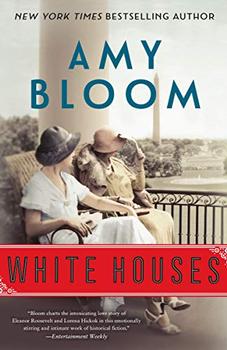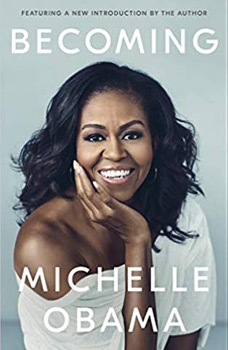Summary | Excerpt | Reading Guide | Reviews | Beyond the book | Read-Alikes | Genres & Themes | Author Bio

The unexpected and forbidden affair between Eleanor Roosevelt and Lorena Hickok unfolds in a triumph of historical fiction from the New York Times bestselling author of Away and Lucky Us.
"I never envied a wife or a husband, until I met Eleanor. Then, I would have traded everything I ever had, every limo ride, every skinny dip, every byline and carefree stroll, for what Franklin had, polio and all."
Lorena Hickok meets Eleanor Roosevelt in 1932 while reporting on Franklin Roosevelt's first presidential campaign. Having grown up worse than poor in South Dakota and reinvented herself as the most prominent woman reporter in America, "Hick," as she's known to her friends and admirers, is not quite instantly charmed by the idealistic, patrician Eleanor. But then, as her connection with the future first lady deepens into intimacy, what begins as a powerful passion matures into a lasting love, and a life that Hick never expected to have.
She moves into the White House, where her status as "first friend" is an open secret, as are FDR's own lovers. After she takes a job in the Roosevelt administration, promoting and protecting both Roosevelts, she comes to know Franklin not only as a great president but as a complicated rival and an irresistible friend, capable of changing lives even after his death. Through it all, even as Hick's bond with Eleanor is tested by forces both extraordinary and common, and as she grows as a woman and a writer, she never loses sight of the love of her life.
From Washington, D.C. to Hyde Park, from a little white house on Long Island to an apartment on Manhattan's Washington Square, Amy Bloom's new novel moves elegantly through fascinating places and times, written in compelling prose and with emotional depth, wit, and acuity.
"Amy Bloom knows the urgency of love," wrote The Washington Post about Bloom's acclaimed bestseller Away. The same could be said of White Houses, an unforgettable novel about the power of passion and the endurance of love.
Although Eleanor and Hick's story is tethered by their re-connection in New York after Roosevelt's death, at times the movements back and forth in their life histories are hard to keep track of and the narrative feels rather rudderless. The novel lacks plot and suspense. As the portrait of the life-long love of one woman for another, however—a love the reader hopes, although is not certain is returned in the same measure—White Houses is genuinely moving...continued
Full Review
(588 words)
This review is available to non-members for a limited time. For full access,
become a member today.
(Reviewed by Kate Braithwaite).
Eleanor Roosevelt had long been a key figure in her husband, Franklin Delano Roosevelt's, political career. When he became President, she transformed the role of the First Lady. She was a vocal and vociferous advocate for human rights and in particular, the rights of women and children. She wrote a popular newspaper column "My Day," and was active in helping the poor and fighting racial discrimination. After her husband's death, President Truman appointed Eleanor Roosevelt to the United Nations. She was given further appointments by President John F. Kennedy, serving her country faithfully until her death in 1962.
But in the partnership of two exceptional public servants there were significant difficulties. In 1914, FDR embarked on an ...
This "beyond the book" feature is available to non-members for a limited time. Join today for full access.

If you liked White Houses, try these:

by Stephanie Dray
Published 2025
New York Times bestselling author Stephanie Dray returns with a captivating and dramatic new novel about an American heroine Frances Perkins.

by Michelle Obama
Published 2021
Winner of the 2019 BookBrowse Nonfiction Award
An intimate, powerful, and inspiring memoir by the former First Lady of the United States.
Men are more moral than they think...
Click Here to find out who said this, as well as discovering other famous literary quotes!